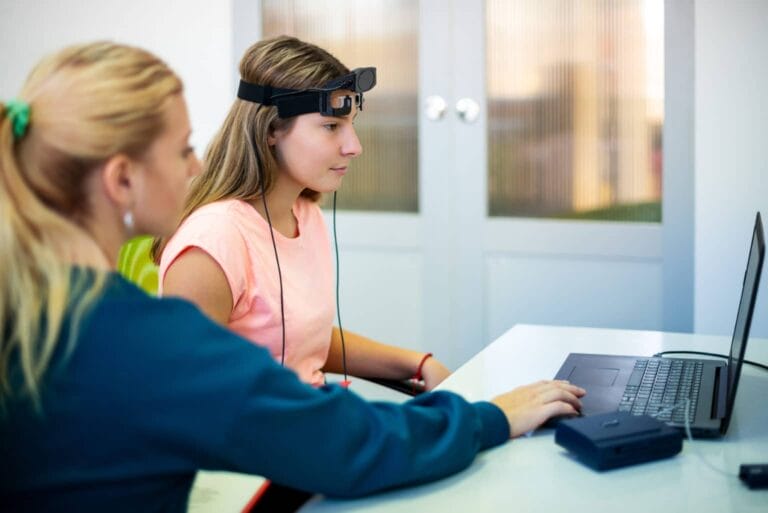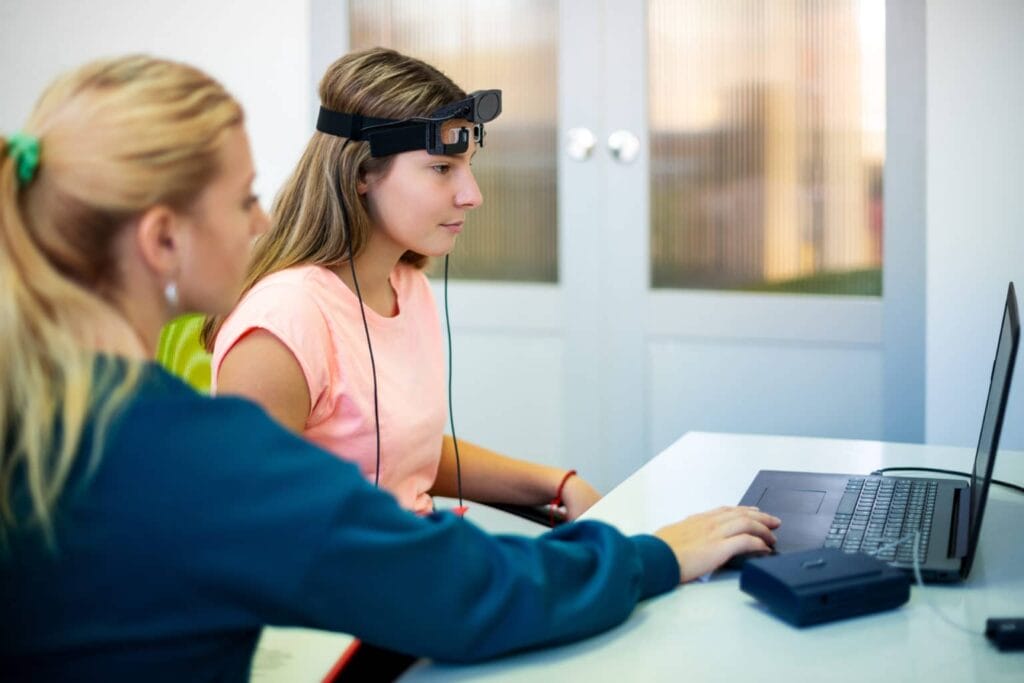- About Us

Get to know us
- Locations
- Treatment

Who We Treat
- Contact Us


Comprehensive behavioral health treatment facilities for adults in a safe and comforting atmosphere in Southern California and Arizona.


Neurofeedback therapy can help treat people with many kinds of mental health conditions like anxiety and depression. EEG biofeedback, brainwave biofeedback, and neurotherapy. Additionally, our neurofeedback therapy in Los Angeles, CA, as well as Phoenix & Tucson, AZ utilizes the electronic monitoring of normal body functions. This helps our patients better control these functions following treatment.
It’s important to know that neurofeedback is not actually a cure. What it is, is a method of managing or regulating the way the brain works so that it can function in a healthier manner. Someone can think of neurofeedback as a way of reprogramming the way the brain acts and reacts to certain events or triggers.
Repeated training sessions do this by using a computerized neurofeedback program that teaches the central nervous system to reorganize and regulate its brainwave frequencies. Neurofeedback assesses the brain. Then, it provides information about areas of dysfunction that are causing symptoms to directly treat them.
Children, adolescents, and adults can undergo neurofeedback. It is used to help treat significant neurological disorders including seizures, behavior disorders, attention deficit disorder or ADD/ADHD, autism and ongoing developmental delays. Additionally, it can help with acquired brain injuries, birth trauma, anxiety, depression, post-traumatic stress disorder (PTSD), stress-related problems, and insomnia. Combining it with other forms of therapy can help provide benefits to patients.
Here is a more in-depth look at how to use neurofeedback to combat some of the more common ailments:
Anxiety is usually associated with symptoms of racing thoughts, feeling “on edge,” or sleep disturbances. Many times this can be a result of a surplus of fast-moving beta waves and a deficit of alpha waves associated with calm and focus. Neurofeedback can help in increasing alpha waves and reducing beta waves. This can help calm a person who experiences extreme cases of anxiety.
Depression symptoms can manifest differently when brain mapping, but it’s not uncommon to see a dysregulation of slow-moving waves associated with depression symptoms. This is why many people who suffer from depression also struggle with sleep issues. Neurofeedback can help decrease depression symptoms by undergoing training 2 to 3 times a week for an 8-week period.
While the majority of people who suffer from ADD or ADHD take medication to help them manage their condition, studies have shown that neurofeedback can be just as effective as a treatment option. People with ADHD often show an excess of slow-moving theta waves.
These slow-loving theta waves are coupled with a deficit in sensory-motor rhythm. Our neurofeedback in Los Angeles can train the brain to restore balance to those areas affected by ADD and ADHD. Some studies have even shown that neurofeedback can help in better diagnosing ADD.
Studies have also linked neurofeedback training to improving memory. In fact, 1 study by the National Center for Biotechnology Information found that neurofeedback improved visuospatial short-term memory for 70% of participants. This success is due to neurofeedback’s ability to increase neuroplasticity. Neuroplasticity is related to greater synaptic growth in the hippocampus, the part of the brain critical to short-term memory.
Many people have used neurofeedback training to improve their sleep quality. Sleep disturbances can often be associated with dysregulation of slow-moving delta waves. Many people with sleep issues may find that they don’t have enough slow-moving waves at night to trigger the brain to fall asleep.
At the same time, they also may find themselves with a surplus of those same waves during the day, leading to drowsiness or a lack of focus. Neurofeedback therapy in Los Angeles, CA can help bring these waves back into balance, improving overall sleep quality.
At Montare Behavioral Healthcare, your mental health and well-being are our number one priority. We offer innovative therapies, such as neurofeedback therapy, to help people struggling with a mental disorder or another brain-related condition. Our qualified therapists use neurofeedback therapy in Los Angeles, California, as well as Phoenix and Tucson, Arizona to retrain the brain for improved impulse control and increase rational thinking.
Contact us today to learn more about our treatment options and find out if neurofeedback is right for you.

Montare Behavioral Health



Typically, neurofeedback consists of weekly sessions for an average of up to 20 weeks. Since every condition is different, some people will be able to complete treatment in under 20 weeks and some will need more time. During each therapy session, a person will be “hooked up” to a computer EEG program, with sensors attached to their scalp.
The program will then process their brain signals and provide information about various brainwave frequencies. The person will then be able to watch the graphics and listen to music while their brain and central nervous system receive feedback. The program will then direct brainwave activity toward a more desirable state. Plus, due to the effectiveness of the technology, feedback and results are instant.
Just like any other type of treatment, there can be some side effects to neurofeedback. Fatigue is a common side effect. That’s because neurofeedback is the brain equivalent of a workout. While brain training and physical training are similar, the way in which fatigue is felt is different. Brain fatigue feels like mental tiring after learning a complex mental skill. People who suffer from more serious conditions may experience an increase in old familiar feelings before the difficulty passes away.
Additionally, people who suffer from more serious conditions may also experience vivid dreams as the mind settles into a more balanced position. Those who have suffered from a brain injury or head trauma tend to be more sensitive to neurofeedback. Some people have reported feeling nausea, dizziness, and light sensitivity in the beginning.
With the proper training, licensed mental health professionals can provide neurofeedback services. However, just like in many other walks of life, it’s important to find a therapist that specializes in the specific condition. Similarly, someone can find a therapist who, at the very least, has had success in treating their condition.
Along with finding someone to treat the condition, it is important to find a therapist that makes the person feel comfortable. After all, they will be sharing very personal information with them, as well as discussing their results and progress.
